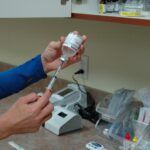Scientists have successfully restored some brain functions of pigs hours after their death.
The definition of death has always been very straightforward. But what if death isn’t the end? Published in the journal ‘Nature’, a breakthrough study investigating whether certain functions might be restored long after death is blurring the lines between life and death. It raises medical hopes, but also leads to bioethical issues. At what point is an animal, or even a human, dead?
Is death still the end?
Yale University scientists have revived the cellular activity in 32 brains from pigs that had been slaughtered for food 4 hours earlier. They put the brains into an apparatus in their lab and began pumping a specially designed blood substitute through the organs. They developed the so-called BrainEx system used to pump artificial nutrients into the brains’ vascular network.
However, the research team emphasised that the treated brains didn’t show any electrical activity that would indicate perception, awareness or consciousness. The brains couldn’t think or sense anything, the researchers stressed. “Clinically defined, this is not a living brain, but it is a cellularly active brain,” Zvonimir Vrselja, study co-author and associate researcher in neuroscience at the Yale School of Medicine told ‘Reuters’.
Essentially, they were still dead brains, so why does the experiment matter? It transforms ideas about how the brain dies. Until now, the belief was that death occurred quickly and irreversibly without oxygen supply. Quoted in the ‘BBC’, lead researcher and senior author Nenad Sestan said: “Cell death in the brain occurs across a longer time window that we previously thought. What we are showing is the process of cell death is a gradual, stepwise process. And that some of those processes can be either postponed, preserved or even reversed.” He added: “We don’t yet have knowledge whether we would be able to restore normal brain function.”
More Information
Access to the full news







Leave a Reply